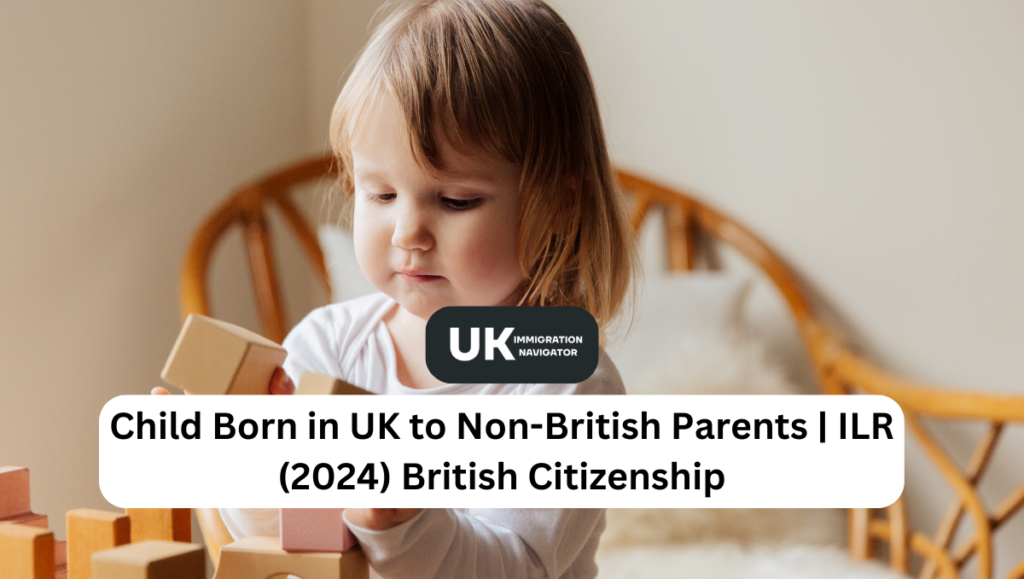Rules for Child Born in UK to Non-British Parents
The journey towards permanent residency in the UK can be complex, especially for children born in the country to non-British parents or those who have spent a significant portion of their lives here. The seven-year child rule, also known as the Private Life Application under Appendix FM, offers a pathway to settlement. In this comprehensive guide, we’ll explore the intricacies of this rule, including eligibility criteria, application process, and important considerations.
Understanding the Seven-Year Child Rule
The seven-year child rule enables children born in the UK or those who have lived here continuously for seven years to apply for immediate permanent residency. For children born outside the UK, the rule allows them to apply for permission to stay for up to five years, with the possibility of settlement thereafter.
Read Also:
- Indian Passport Renewal In the UK 2024
Rise in Minimum Wages for Skilled Workers in the United Kingdom in 2024
Table of Contents
Qualifying for Permanent Residency

To qualify under the seven-year child rule, certain criteria must be met:
For Children Born in the UK:
- Age Requirement: The child must be under 18 years old.
- Proof of Birth: Documentation such as a passport or birth certificate is required to verify the child’s age and birth in the UK.
- Continuous Residence: Evidence of continuous residence in the UK for seven years, supported by passport stamps and official letters.
For Children Not Born in the UK:
- Continuous Residence: Similar to those born in the UK, children not born in the UK must demonstrate seven years of continuous residence.
- Residency Permission: They can be granted permission to stay in the UK for five years initially, with the option to apply for settlement thereafter.
Application Process
The application process for the seven-year child rule involves submitting the necessary documents to the UK Home Office, including proof of age, birth, and continuous residence. The Home Office assesses each case individually, considering factors such as the child’s age, relationships, and ties to the UK and their home country.
Additional Requirements:
- Language and Knowledge Test: Children aged 18 or older must provide evidence of English proficiency and pass the Life in the UK test.
- Residency Duration: Young adults aged between 18 and 25 must have spent at least half of their life in the UK to qualify under this route.
Benefits of Permanent Residency
Securing permanent residency through the seven-year child rule offers numerous benefits, including:
- Right to Reside: The child can live in the UK indefinitely without immigration restrictions.
- Access to Services: Access to education, healthcare, and employment opportunities.
- Path to Citizenship: After holding permanent residency for 12 months, the child can apply for British citizenship.
Possible Rejection Reasons
Despite meeting the eligibility criteria, applications under the seven-year child rule may face rejection due to:
- Incomplete Application: Errors or omissions in the application form or insufficient documentation.
- General Grounds: Factors such as criminal convictions or failure to meet the reasonable test.
Conclusion
The seven-year child rule provides a valuable pathway for children to secure permanent residency in the UK, offering stability and opportunities for growth and development. By understanding the eligibility criteria, application process, and potential challenges, parents can confidently navigate this journey, ensuring a brighter future for their children in the UK.
FAQs (Frequently Asked Questions)
- Can a child’s parent claim child benefits from the UK government? While not standard practice, parents can apply for permission to claim public funds, demonstrating poverty as a high threshold.
- What is the difference between the seven-year rule and the five-year rule? The seven-year rule allows children born in the UK to apply for settlement immediately, while the five-year rule applies to children born outside the UK who have lived in the UK for seven years.
By providing accurate and relevant information, we aim to empower families to navigate the complexities of UK immigration law and secure a brighter future for their children.



